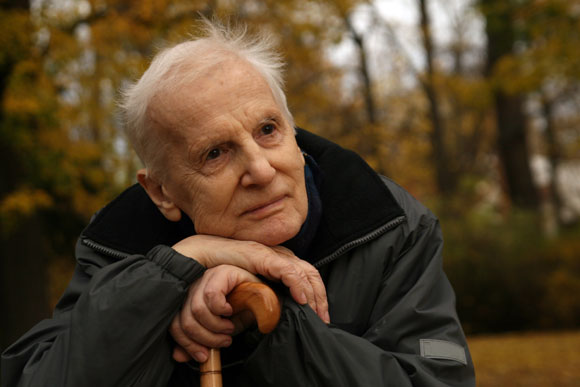"Perhaps the most basic belief underlying all of our feelings of entitlement, our 'if onlies,' and even our illusions, is the belief that life should please us, that life should be comfortable. All of our resistance to life is rooted in our wanting life to be pleasing, comfortable, and safe. When life doesn't give us what we want — the job that isn't satisfying, the relationship that isn't quite working, the body that ages and breaks down — we resist. Our resistance can manifest as anger, or fear, or self-pity, or depression, but whatever forms it takes, it blocks our ability to experience true contentment. We see our discomfort as the problem: yet it's the belief that we can't be happy if we're uncomfortable that is much more of a problem than the discomfort itself."
— Ezra Bayda in Beyond Happiness: The Zen Way to True Contentment
Let's face it. We do feel that we are entitled to be happy. Many times we operate under the assumption that having self-esteem also means thinking that we deserve special treatment and are better than other people. Where does our sense of entitlement come from? What feeds it?
Entitlement is encouraged by competition that has become the heartbeat of our society. Since only the winners count, it is okay to do whatever it takes to advance your position and the accompanying rewards. Students are cheating on tests, journalists are plagiarizing others, lawyers are falsifying their billable hours, athletes are using drugs to enhance their performance, and corporations are using every stragegy they can find to evade taxes.

Meanwhile, the gap between the rich and the poor is growing. The middle-class is vanishing in this winner-take-all world where entitlement among the rich and the powerful is more pronounced than ever before. The ideal of equality has vanished as wealthy individuals and corporations are turning their money into influence and reshaping politics.
Entitlement is also displayed in what Robert Fuller in Somebodies and Nobodies calls "rankism" — the shabby and dehumanizing treatment of others by those in power. Assault on the dignity of others happens every day when a boss humiliates an employee, a coach bullies a player, or a police officer violates the rights of a suspect. This treatment makes many men and woman feel like they are nobodies as they tally up the number of times they have been treated like a zero. Instead of helping a thousand flowers of personhood bloom, the media lionizes celebrities and others who make a habit of exhibiting self-centeredness because they are by their rank entitled to do so.
There is a trickle-down process working here too. All of us, no matter our position, are infected by this egocentric behavior whereby we tell ourselves that we deserve happiness and to always have things go our way. We remember as children the neediness that made us throw a fit when we did not get what we wanted. In our adolescent years we expected our parents to chauffeur us around from one place to another. Were we thankful? No; we expected adults to meet our needs; we were convinced that they owed us special treatment. And when they didn't do what we wanted, we cried out as demanding youth: "It's not fair!"
Entitlement is pervasive not only in our culture and public life but also in our families and private lives. But we can make changes in our thoughts and behavior to lessen the energy of entitlement. Here are some spiritual practices to try.

Empathy
In the midst of the uncivil, nasty, aggressive, and narcissistive push-and-shove of life, empathy — the habit of identifying with and responding to the unique experience of another — can serve as a corrective. By increasing our awareness of other people's thoughts and feelings, we can make the world a better place. Instead of viewing someone else as competition, see him afresh as a person like you in need of affirmation, encouragement, and love. See this person as an ally, as someone who can bring out the best in you.
Let Go of Expectations
Expectations are often a project of entitlement. The next time you find yourself trying to control how things will turn out in some engagement, let things unfold naturally. You will find yourself better able to live in the present moment once expectations are gone. Use the words "let it be" as a password to your practice of dispensing with expectations.
Recognize Your Connections with Others
One of the reasons we cling to entitlement as a way of advancing our own position or causes is that we feel that we have nothing in common with others. When you are next in a public place, look around and ponder all the possible connections to the people there. See what presents itself to you.

Rejoice in the Happiness of Others
Rejoicing in the happiness and success of others is a healthy antidote to our preoccupation with the happiness we think is due us. When you acknowledge someone else's good fortune you counter the very human tendency to feel that there is a limited supply of happiness and someone else is getting your share. Express your happiness in a note or with a call. Celebrate others' joys in your prayers by praying for all the people being married right now, all the people welcoming a new child into the family right now, all the people getting a promotion right now, all the people relaxing on vacation right now.
Be Grateful
Being thankful for what we have is a firewall against the discontent that accompanies feelings of entitlement. The bonus is that this builds self-esteem. Timothy Miller in How to Want What You Have advises: "Practice gratitude for the people who love you or like you. Don't be concerned how many there are, or how nice or attractive or helpful they are. Just focus on the simple fact that there are at least a few people in the world who love or like you and be open to gratitude for that."
Step Aside
Entitlement wears many different disguises but is always convincing us to put ourselves first and to make sure that everyone knows that we are special. The next time you feel the urge to play this ego game, find a way out by diminishing yourself and showing your heart. For example, if you are getting off a crowded airplane and someone pushes you, step aside and let them pass saying, "Please go ahead, I'm in no hurry."

Give Up the Vacation You'd Planned
A long-needed vacation after an onerous work schedule filled with deadlines and stress is the perfect setting for entitlement challenges. We arrive in the place we have chosen as our little escape to paradise, planning to play in the ocean and lie on the beach in the sun, only to find that it is raining and the forecast is for much of the same for the rest of the week. The challenge is to give up the stories you have told yourself about this trip and accept what unfolds as you live each day in the present moment. Or as the great Joseph Campbell put it: "We must be willing to get rid of the life we've planned, so as to have the life that is waiting for us."
Accept Health Challenges
Those of us who exercise regularly, eat the right foods, take the right supplements, and do not drink or smoke often feel that we are entitled to good health. If we do get sick or undergo an injury, we feel that it is "unfair" given all the good things we have done to take care of ourselves. These expectations don't jive with reality where suffering and pain are as much a part of life as fitness and vigor. Those on a spiritual path learned to be resilient and to accept the lessons that can come with illness and physical breakdowns. Design a spiritual practice to carry you through the exertions of your body whether you are healthy or sick.

Put Your Mind Under New Management
It is easy to tell ourselves the familiar old stories of entitlement and to justify our actions in the name of fairness. Another approach is to put our minds under new management. Consider what it would mean if you didn't pledge allegiance to entitlement anymore? What positive and life-enhancing practice would you put in its place? Choose one of those suggested in this feature, or another one, and commit to practicing it for the next week. Journal about what you learn; then decide whether to continue with that practice or try another one.
